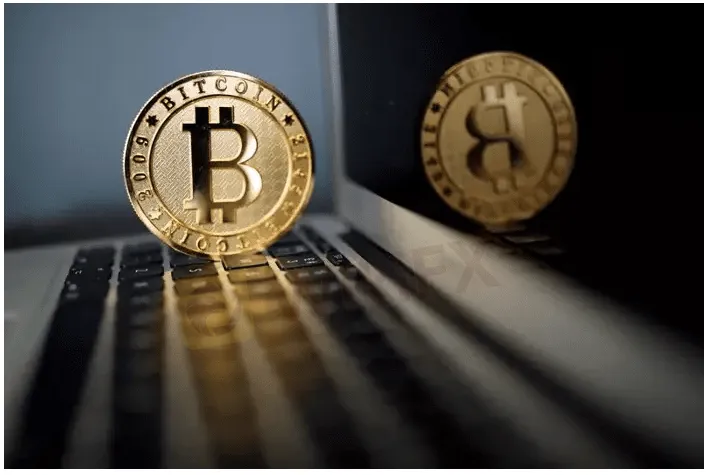简体中文
繁體中文
English
Pусский
日本語
ภาษาไทย
Tiếng Việt
Bahasa Indonesia
Español
हिन्दी
Filippiiniläinen
Français
Deutsch
Português
Türkçe
한국어
العربية
EU Backs Anti-Money Laundering Rules for Cryptocurrencies
Abstract:The EU announces progress towards a formal crypto regulatory framework. As exchanges target the region, progress should support growth and innovation.

Key Insights:
On Wednesday, EU regulators were back in the news, with the EU parliament announcing an agreement on crypto anti-money laundering rules.
The EU has been actively pursuing a crypto regulatory framework following the vote not to ban proof-of-work mining.
An EU-wide regulatory framework would remove regulatory uncertainty that plagues other jurisdictions.
While governments grapple with inflation, recessionary threats, and the ongoing war in Ukraine, the EU continues to move towards an EU-wide crypto regulatory framework.
In March, European Union lawmakers voted no to a proof-of-work ban. The vote against a blanket ban on bitcoin (BTC) and other cryptos paved the way for a more progressive approach to regulating the crypto market.
The war in Ukraine and concerns that Russia may attempt to circumvent sanctions via the crypto market gave the EU added incentive to formulate and legislate a blueprint to regulate the industry.
Markets in Crypto Assets (MiCA) has been doing its rounds through the European parliament. To sit alongside MiCA is the Transfer of Funds Regulation (TFR).
The EU Parliament Agrees on Crypto Anti-Money Laundering Rules
Overnight, news hit the wires of EU negotiators reaching an agreement on anti-money laundering rules for the crypto sector.
The European Council, Council of the European Union, issued a press release stating,
“The EU is making it more difficult for criminals to misuse cryptocurrencies for criminal purposes.”
The press release went on to say,
“Negotiators from the Council presidency and the European Parliament have reached a provisional agreement on the proposal updating the rules on information accompanying the transfers of funds by extending the scope of those rules to transfers of crypto assets.”
Under the new rules, crypto asset service providers will need to collect and avail certain information relating to the originator and the beneficiary of the transfers of cryptos they support.
As noted by the Council,
“This is what payment service providers currently do for wire transfers. This will ensure traceability of crypto-asset transfers in order to be able to better identify possible suspicious transactions and block them.”
The Council concluded by stating,
“Co-legislators also agreed on the urgency to ensure traceability of crypto-asset transfers and chose to align the timetable for application of this regulation with that of the markets in crypto assets (MiCA) regulation.”
EU progress towards a formal regulatory framework comes as crypto exchanges target the EU market for expansion.
Crypto Exchanges Target the EU Market to Drive Growth
In recent months, crypto activity within the EU has picked up. Binance is among prominent names targeting the EU to deliver on expansion goals.
This year, Binance registered as a digital asset provider in France, the first in a major European nation. Since the French nod, Binance has also targeted Germany.
In May, the Binance team attended Finance Forward in Hamburg, networking with the crypto community. While the crypto winter has hit the market hard, Binance is looking to take advantage of the current market environment to expand. Market conditions have provided Binance Coin (BNB) support and a move up the crypto market rankings.
Coinbase is also reportedly looking to expand into Europe. According to Bloomberg News, Coinbase is renewing its expansion plans. Coinbase is in the process of registering in markets including France, Italy, the Netherlands, and Spain.
For Binance and Coinbase, a cohesive regulatory framework could support growth and innovation. A lack of a formal crypto regulatory framework and delegation of roles and responsibilities affects innovation and growth.
The ongoing SEC case against Ripple is one example that demonstrates the impact of a disjointed regulatory framework on cryptos. US regulators have yet to classify cryptos into commodities and securities.

Disclaimer:
The views in this article only represent the author's personal views, and do not constitute investment advice on this platform. This platform does not guarantee the accuracy, completeness and timeliness of the information in the article, and will not be liable for any loss caused by the use of or reliance on the information in the article.
Read more

The Withdrawal Trap: How Scam Brokers Lure Victims into Paying More
In the world of online trading, the promise of quick profits and seamless transactions often masks a darker reality. One of the most insidious tactics employed by fraudulent brokers is blocking withdrawals, that is a deliberate strategy designed to trap traders and investors into paying more money under false pretences.

Common Tactics Used in Online Trading Fraud Today
Know the top online trading scams of 2025, from fake apps to pump-and-dump tricks. Simple tips to spot and avoid them, keeping your money safe in this easy guide.

RM1.29 Million Lost in ‘C Baird VIP’ WhatsApp Scam
A 43-year-old company auditor and subcontractor in Malaysia became the latest victim of an elaborate investment scam after losing RM1.29 million to a fraudulent scheme promoted via WhatsApp.

U.S. March ISM Manufacturing PMI Released
The U.S. March ISM Manufacturing PMI data shows that manufacturing has contracted for the first time, and investors should pay attention to future changes and impacts on the sector.
WikiFX Broker
Latest News
Exposing the Top 5 Scam Brokers of March 2025: A Closer Look by WikiFX
Gold Prices Climb Again – Have Investors Seized the Opportunity?
Webull Launches SMSF Investment Platform with Zero Fees
Australian Regulator Warns of Money Laundering and Fraud Risks in Crypto ATMs
FCA Warns Against 10 Unlicensed or Clone Firms
CySEC Warns Against 14 Unlicensed Investment Websites
Top Currency Pairs to Watch for Profit This Week - March 31, 2025
Will natural disasters have an impact on the forex market?
Philippines Deports 29 Indonesians Linked to Online Scam Syndicate in Manila
The Withdrawal Trap: How Scam Brokers Lure Victims into Paying More
Currency Calculator







